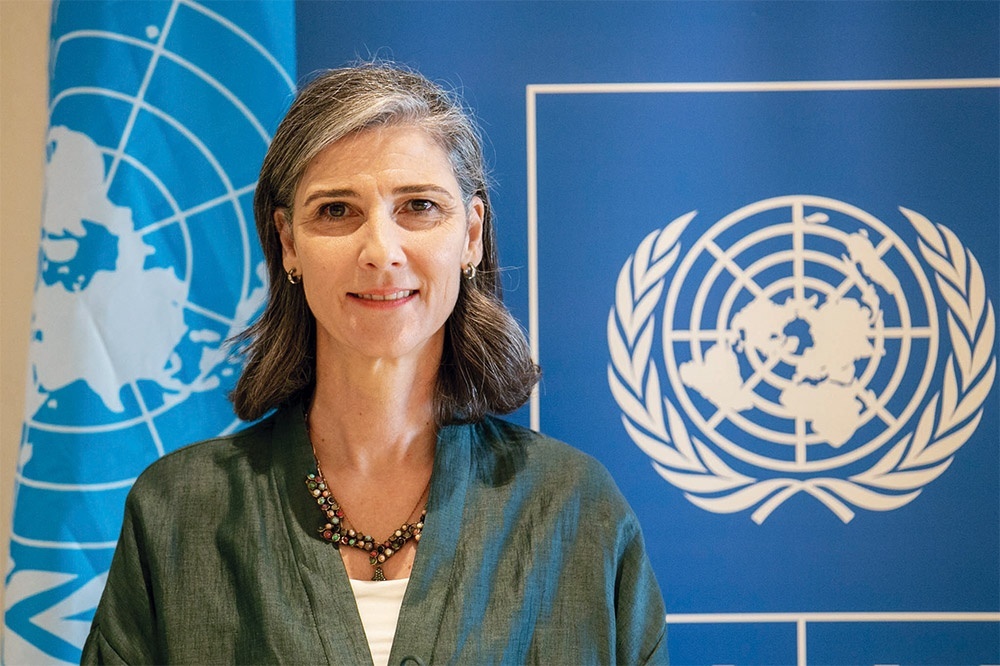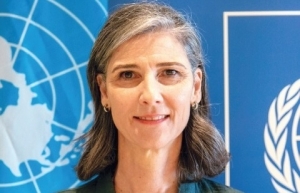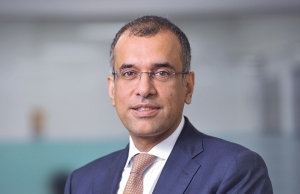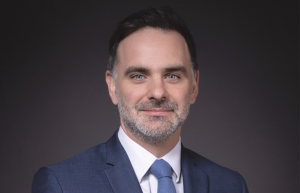Vietnam’s green rise ensures a just transition for everyone
Vietnam’s aspirations are as inspiring as they are urgent. By 2045, the country aims to become a high-income economy. Yet, the journey must be more than economic – it must be inclusive and equitable. A just transition ensures that workers are not left behind in coalfields and factories, that small businesses are not shut out of the green and digital economy, and that women, youth, and vulnerable groups are not only protected, but uplifted.
 |
| Ramla Khalidi, Resident representative in Vietnam United Nations Development Programme |
This is not only the right thing to do – it is smart economics. There are many potential gains from investing in green policies. In Vietnam, the potential is enormous: investments in renewable energy and sustainable infrastructure could generate up to half a million new jobs by 2030, especially in sectors such as solar power, energy efficiency, and clean transport.
Beyond job creation, the just transition ensures that new economic growth pathways are enjoyed equitably among different groups of population.
Already, Vietnam is showing remarkable leadership. The Just Energy Transition Partnership, a landmark political declaration, is mobilising $15.5 billion in public and private funds to help the country transition from coal while supporting communities and industries affected by the shift. Meanwhile, national strategies on digital economy, green growth, and social protection reform reflect a deep understanding that transformation must be inclusive by design.
We are proud to walk this journey with Vietnam. As the partnership’s secretariat support agency, we support the government to strengthen coordination with partners, broaden private sector engagement to mobilise sustainable finance, and provide the government with tools to ensure projects are socially inclusive and environmentally sound.
We are supporting the government to localise the Global Accelerator on Jobs and Social Protection for Just Transitions, ensuring that social equity is at the heart of economic transformation. We are investing in digital public infrastructure, promoting climate and energy governance, and helping to expand access to finance, skills, and social protection, especially for the most vulnerable.
And we know that governance matters. Trust in public institutions is the bedrock of inclusive development. Through initiatives like PAPI, the largest governance and public administration survey in Vietnam, we are helping strengthen transparency, accountability, and citizen engagement – critical pillars for a just transition that is owned by the people.
Vietnam has what it takes: a dynamic population, a forward-looking government, and a growing ecosystem of innovators, entrepreneurs, and changemakers. The question before us is not if Vietnam can lead in building a just and sustainable future, but how fast and how far we are willing to go together.
The success of this vision depends on our ability to turn policies into progress – to ensure, for example, that coal workers in Quang Ninh have real opportunities for retraining and reemployment, that women in rural areas can access digital tools and green jobs, and that informal workers have access to social protection and upskilling pathways.
The most powerful way to turn policies into real progress is to make the just transition a force for empowerment, dignity, and opportunity. It means ensuring that innovation thrives in every village, not just urban centres; that climate action delivers dignified livelihoods, not just targets; and that the green and digital economy leaves no-one behind.
The world today faces new challenges and growing economic headwinds. The just transition is not a detour – it is the catalyst that can turn disruption into opportunity, and ambition into lasting impact. We are committed to walking that path with Vietnam, towards a more just, inclusive, and future-ready nation.
 |
| A dynamic population and growing ecosystem of innovators provide the platform for Vietnam’s green ambitions |
| Tran Thi Thu Trang, president, Hanel PT Our company specialises in two areas: manufacturing components for major global corporations and producing dryers for the agricultural and seafood industries. From the beginning, we determined that the company’s value must stem from social value. We embedded the letter “S” into the core values of the business, so all our activities are tied to this element. For instance, within our company’s core values, we identify five benefits: for customers, for employees, for the environment, for the country, and for the company itself. We also integrate the “S” factor into all our services and products, and this effort is increasingly implemented in greater depth. For example, in the past, the company launched a scheme to donate warm clothes to children in highland areas. However, we realised that we needed to do something that would bring longer-term and more significant value. As a result, we initiated the Green Vietnam project to improve soil conditions so that farmers in highland areas no longer face hardened, barren land and reduce their reliance on chemicals. In the long run, people will profit from cultivating fertile land, earning money to buy clothes for their children. We view the “S” factor here not merely as giving something to others, but as how we interact with society through our products and services. Le Thi Hoai Thuong, head of Public Affairs Nestlé Vietnam Fulfilling the commitment to the “social” aspect in environmental, social, and governance considerations is not a simple task. The challenge lies in how to create long-term and sustainable benefits for all. With a commitment to helping young people on their career path, Nestlé is seeking to innovate and expand its training courses. The NESTGEN 2025 programme is one example, which offers in-depth knowledge in sectors like supply chain, engineering, and operations. Besides that, we also prioritise gender equality and women’s empowerment. We have collaborated with the Vietnam Women’s Union to create additional livelihoods for women and help them enhance their knowledge. With our strengths in agriculture and food, we focus on cooperation programmes with ministries, agencies, and non-governmental organisations in the agricultural sector to implement support initiatives for farmers, To date, we have worked with approximately 21,000 farming households in the Central Highlands and organised 200,000 training sessions for farmers, enabling them to obtain certifications for sustainable coffee – a factor that facilitates their export of coffee to demanding markets like Europe. Through these farmer collaboration initiatives, we have built an ecosystem and platforms to create stable raw material regions, while farmers also gain benefits such as increased livelihoods, stable income, and sustainable farming practices, thereby meeting the stringent requirements of discerning markets. This is how we create shared value. |
 | JETP a crucial step for Vietnam’s climate ambitions Almost one year ago, the Vietnamese government agreed on a Just Energy Transition Partnership (JETP) to facilitate the transition away from fossil fuels towards cleaner forms of energy. In the months since, there has been a flurry of activity to support the operationalisation of that initial agreement. |
 | Financing the energy transition for Southeast Asia It is unusual to feel nostalgia when you glimpse the future. Seeing an electric rickshaw for the first time, I could not help but smile remembering the spluttering sound of rickshaws which filled the crowded Indian streets of my youth. New electric models are quickly becoming a more common sight in those parts of Southeast Asia which share that three-wheeled transport tradition. |
 | Green Energy Transition Showcase powers sustainable future The Asia Society for Social Improvement and Sustainable Transformation (ASSIST) on August 27 launched the Green Energy Transition Showcase with the theme Powering a Sustainable Future in Ho Chi Minh City. |
 | France committed to support in digital and energy transition Last week, Laurent Saint-Martin, French Minister Delegate for Foreign Trade and French Nationals Abroad, visited Vietnam to boost trade and investment ties between the two countries. He spoke with VIR’s Thanh Tung about the prospects for cooperation. |
What the stars mean:
★ Poor ★ ★ Promising ★★★ Good ★★★★ Very good ★★★★★ Exceptional
 Tag:
Tag:
Related Contents
Latest News
More News
- Trung Nam-Sideros River consortium wins bid for LNG venture (January 30, 2026 | 11:16)
- Vietnam moves towards market-based fuel management with E10 rollout (January 30, 2026 | 11:10)
- Envision Energy, REE Group partner on 128MW wind projects (January 30, 2026 | 10:58)
- Vingroup consults on carbon credits for electric vehicle charging network (January 28, 2026 | 11:04)
- Bac Ai Pumped Storage Hydropower Plant to enter peak construction phase (January 27, 2026 | 08:00)
- ASEAN could scale up sustainable aviation fuel by 2050 (January 24, 2026 | 10:19)
- 64,000 hectares of sea allocated for offshore wind surveys (January 22, 2026 | 20:23)
- EVN secures financing for Quang Trach II LNG power plant (January 17, 2026 | 15:55)
- PC1 teams up with DENZAI on regional wind projects (January 16, 2026 | 21:18)
- Innovation and ESG practices drive green transition in the digital era (January 16, 2026 | 16:51)






















 Mobile Version
Mobile Version